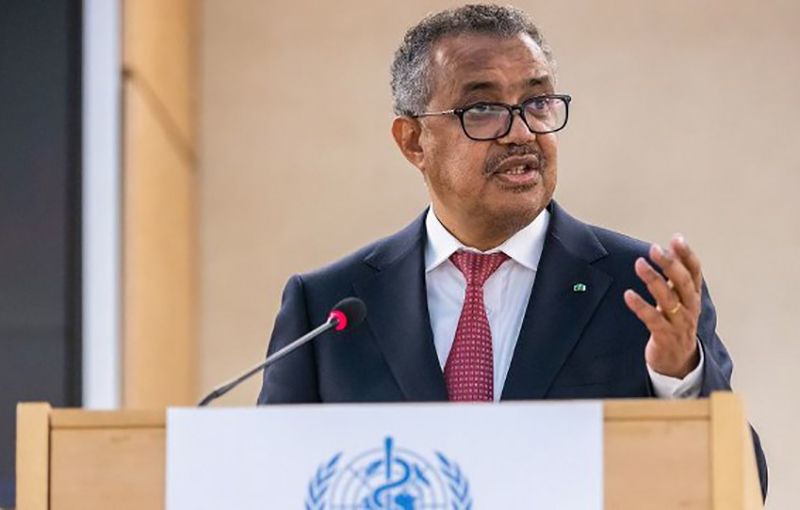World Health Organization (WHO) Director-General Tedros Adhanom Ghebreyesus has warned that sepsis accounts for one in five deaths globally, including children.
He said the WHO is committed to addressing the disease as a global threat.
The WHO chief tweeted: "Sepsis accounts for nearly 1 in 5 deaths globally, including children."
"We know these deaths can be avoided, through vaccines, rapid diagnostics and timely access to appropriate and effective treatments," he said.
Ghebreyesus has urged all countries to take serious action against the disease.
According to the WHO website, sepsis is a serious condition that happens when the body’s immune system has an extreme response to an infection. The body’s reaction causes damage to its own tissues and organs.
Sepsis can affect anyone, but people who are older, very young, pregnant or have other health problems are at higher risk.
What are the symptoms?
Common signs of sepsis include fever, fast heart rate, rapid breathing, confusion and body pain. It can lead to septic shock, multiple organ failure and death.
Sepsis is usually caused by bacterial infections but may be the result of other infections such as viruses, parasites or fungi.
Is there any treatment for it?
Treatment for sepsis requires medical care. It will include antimicrobials, intravenous fluids and careful monitoring, according to WHO website.
Sepsis acquired in health care settings is one of the most frequent adverse events during care delivery and affects hundreds of millions of patients worldwide every year.



